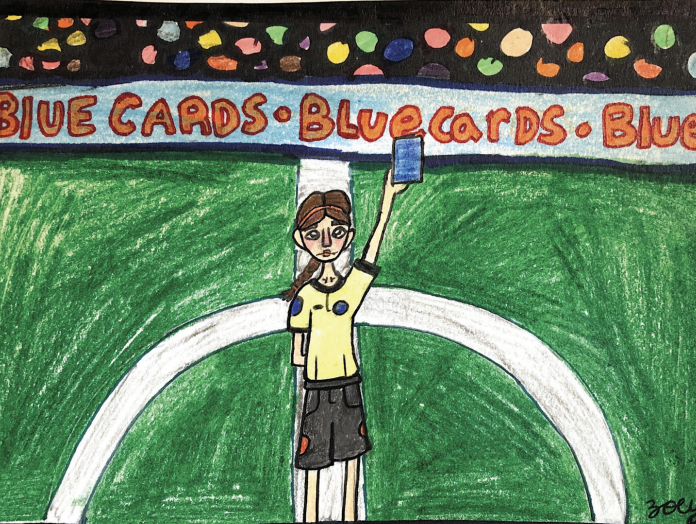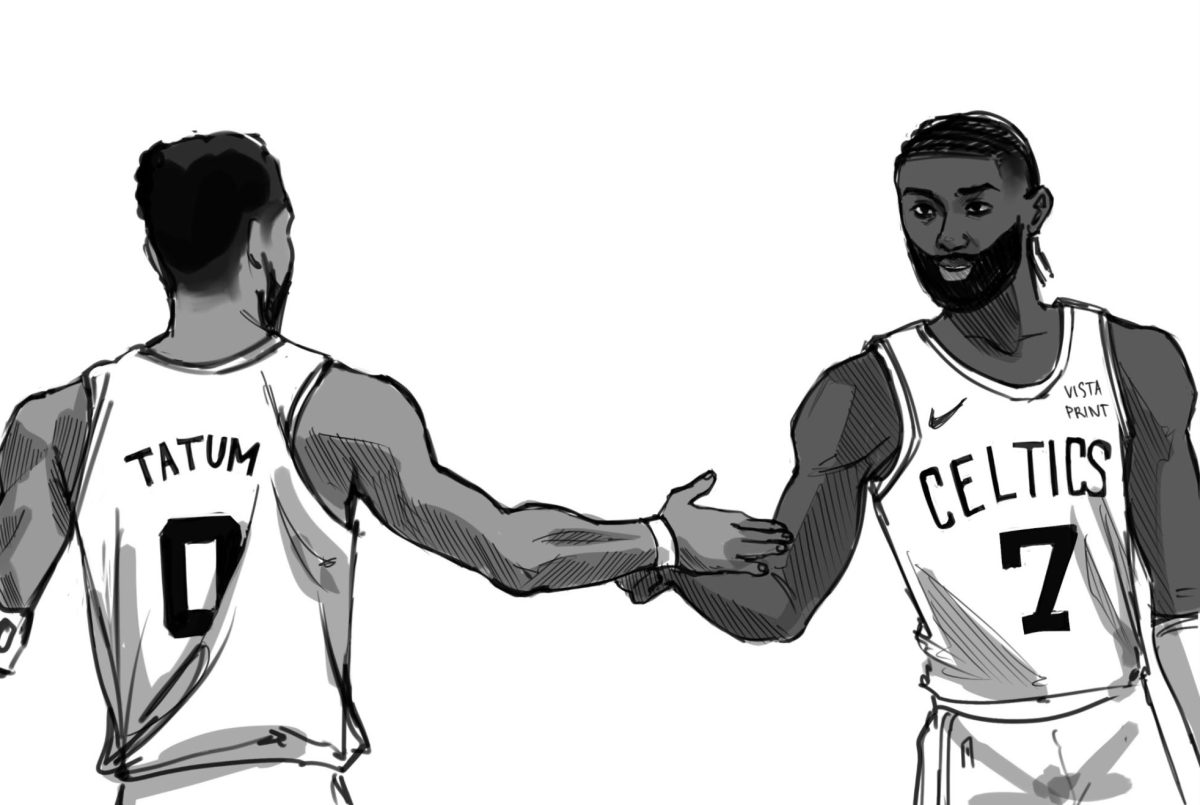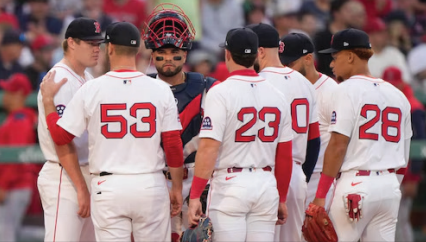Part 1: Sin-Bins
After the controversy that is VAR (Video Assistant Referee) in professional soccer, sin-bins are next on the list, and these “blue cards” could be seriously game-changing. Now I know what you may be thinking, “What in the world is a sin-bin?” Well, you’re definitely not alone in that thought, as sin-bins are a relatively new concept in the professional soccer scene. However, some might be familiar with minor penalties in hockey, often known as power plays where the player who committed the offense is sent to the penalty box for two minutes, leaving their team down a player until their time expires. This is essentially how a blue card in soccer will work, but for ten minutes instead of the two given out in hockey.
Sin-bins in soccer will only be given out after acts of serious dissent or cynical fouls, and two blue cards in one match will result in a red card and multiple-game suspension. This means that any foul with intent away from the game such as a targeted attack on an opposing player or an unnecessary challenge will be penalized, as well as any arguing or unacceptable language directed towards another player or a referee.
Essentially, the “blue card” is the midground between a yellow and a red card, for fouls that seem not quite bad enough for a red but definitely worse than your average yellow. Fans are having a mixed range of reactions to this news, many applauding the idea while others are complaining that the game has become soft and that this will remove the fun of reckless tackles from the game. However, there are a lot of upsides, as players will be more careful, and could also decrease the amount of unnecessary red cards being given out. The amount of injuries could go down as well, seeing our favorite players get more playtime and be able to stay healthy for the duration of the season. Sin-bins are currently being tried in lower leagues across Europe but will likely not be implemented into the top tiers of European soccer until the 2026-27 season at the earliest, and is not guaranteed to make it into the rulebook at all. During trials in the lowest tiers of English soccer, around 75% of players, managers, and referees have approved of this new rule, and acts of dissent have reportedly gone down by a whopping 38% according to CBS Sports. A possible first destination for professional sin-bin trials could be our very own MLS, or the Women’s Super League in England. Compared to previous trials, these sin-bins have a much better chance of actually coming to fruition, possibly pushing soccer in a new; safer direction.
This article also appears in our print March 2024 edition.














